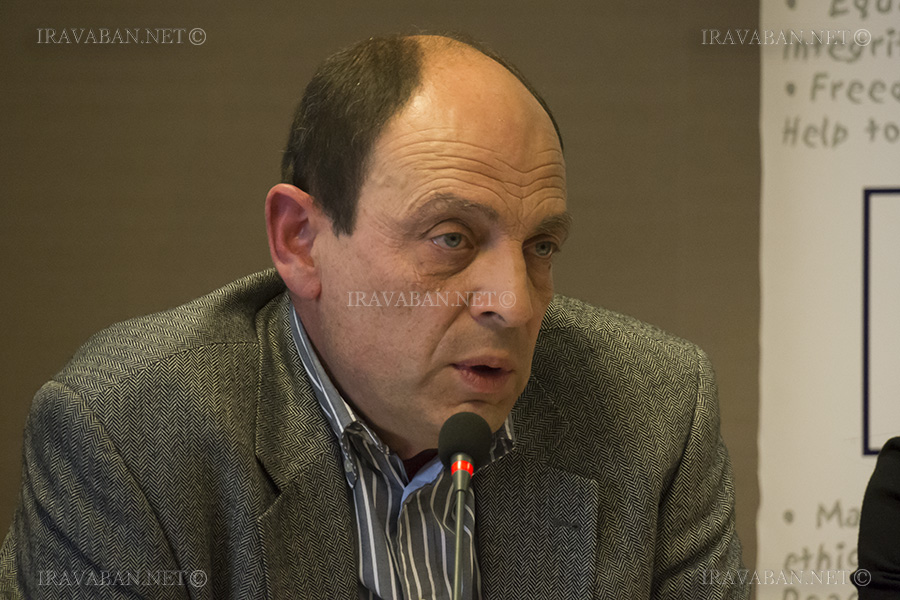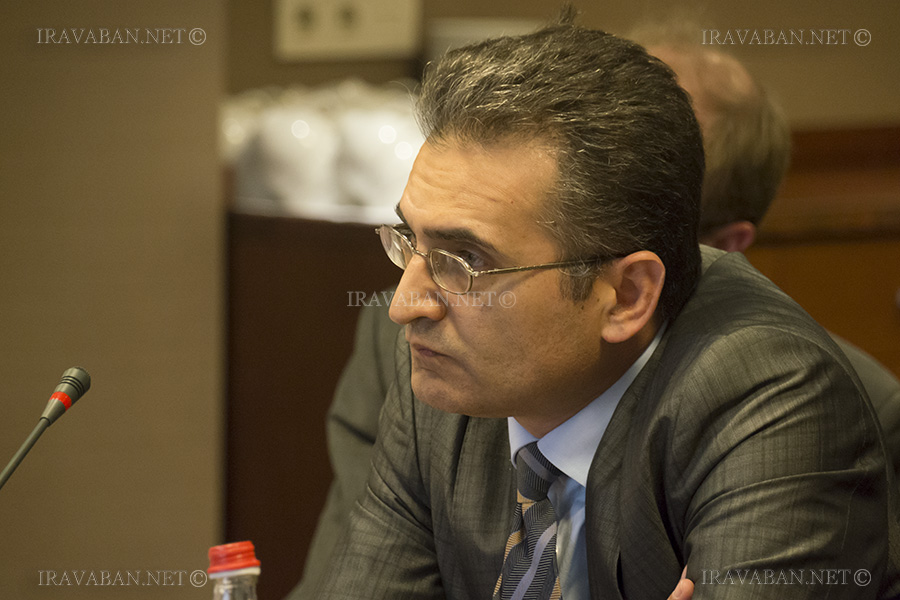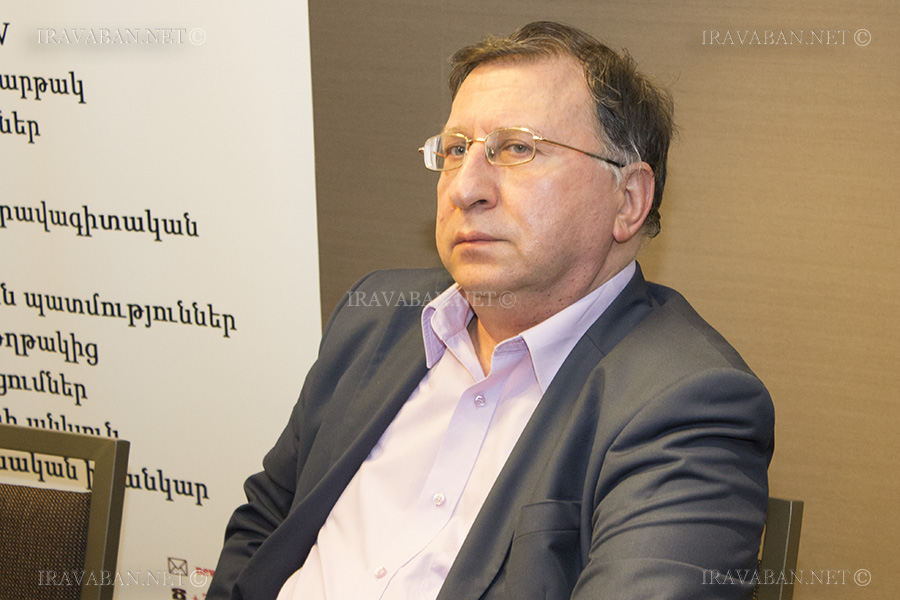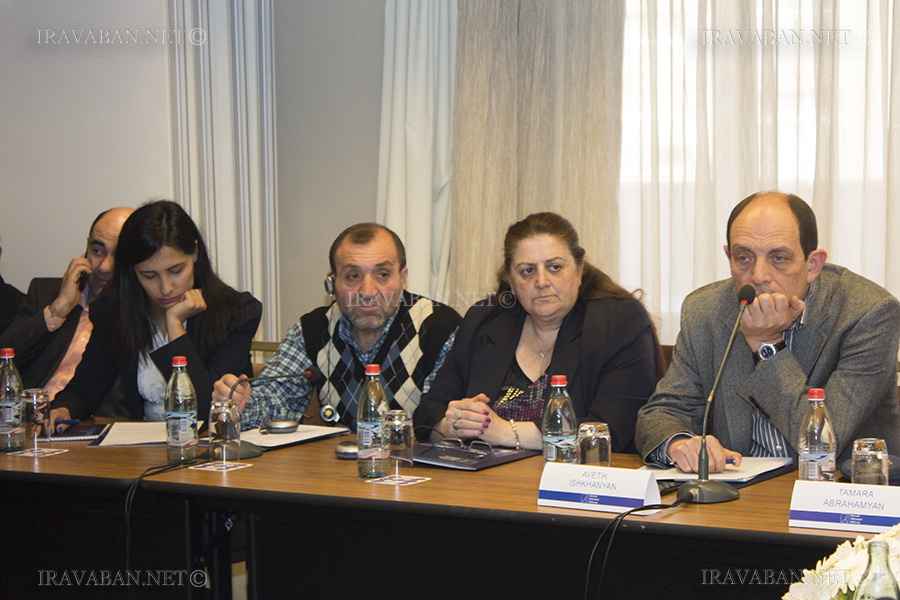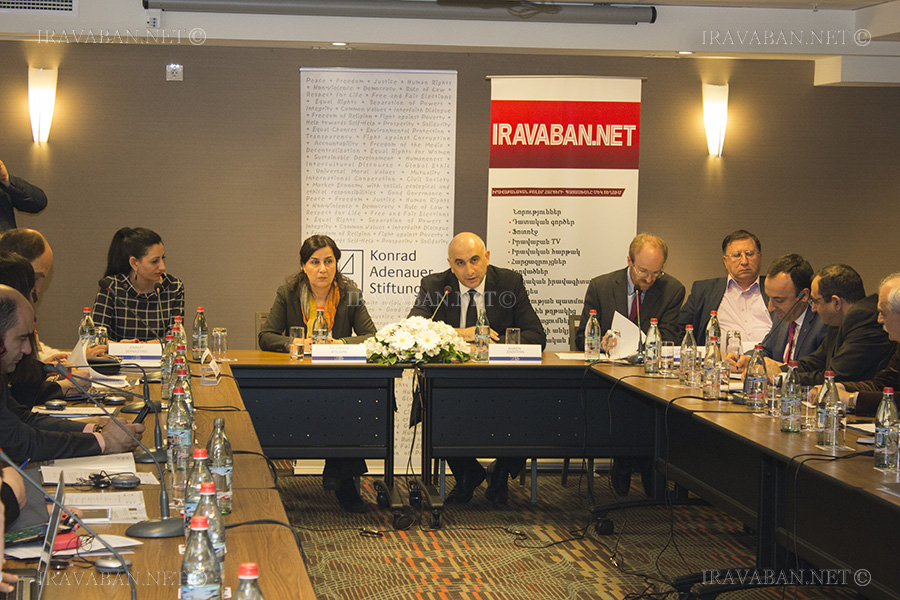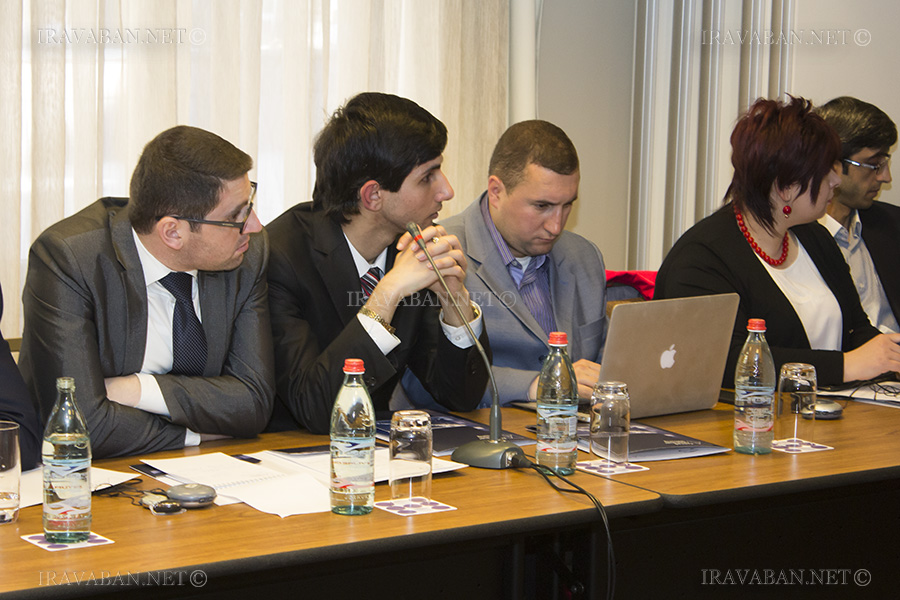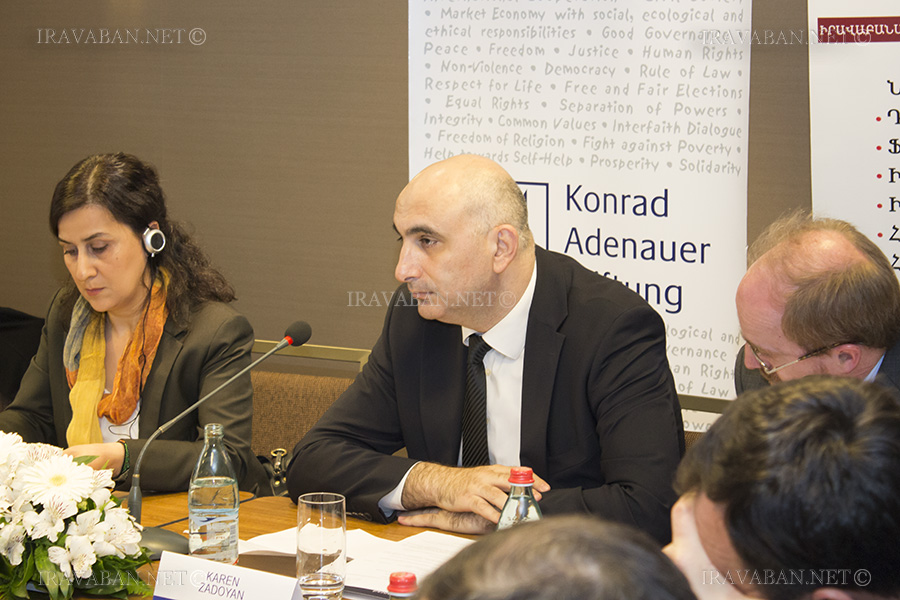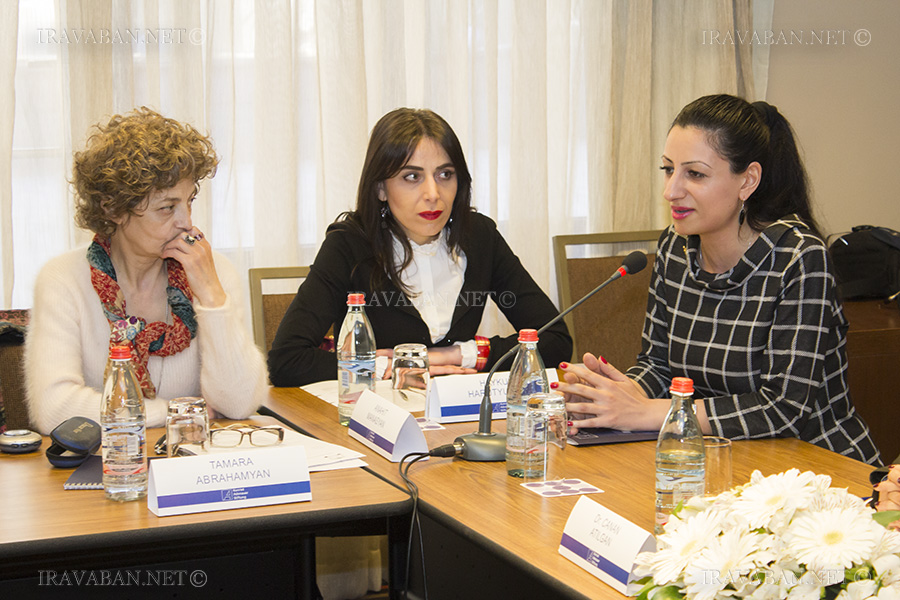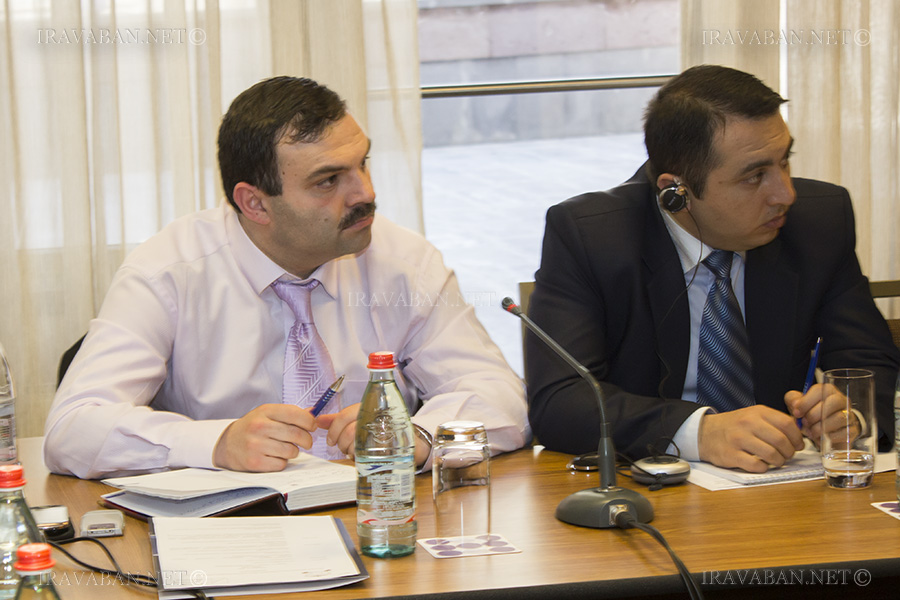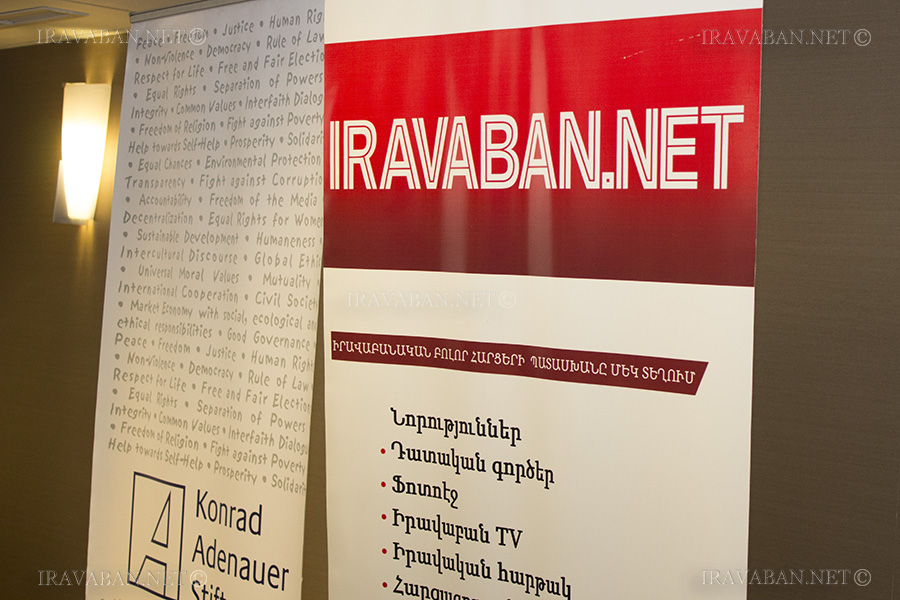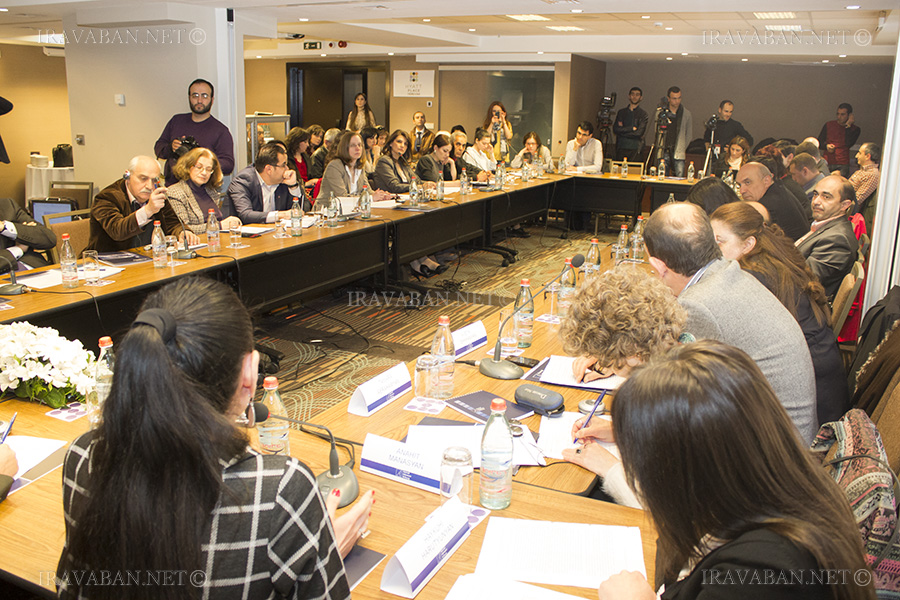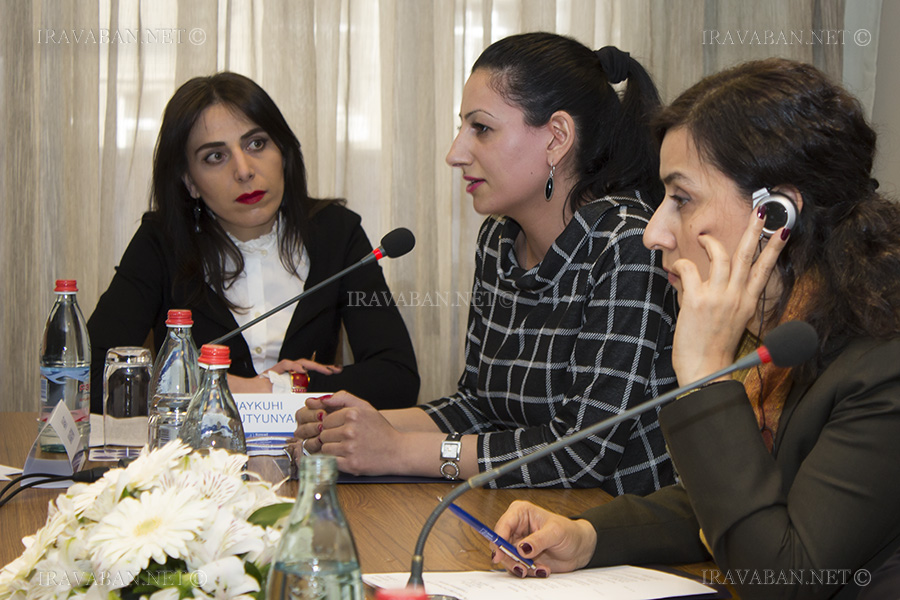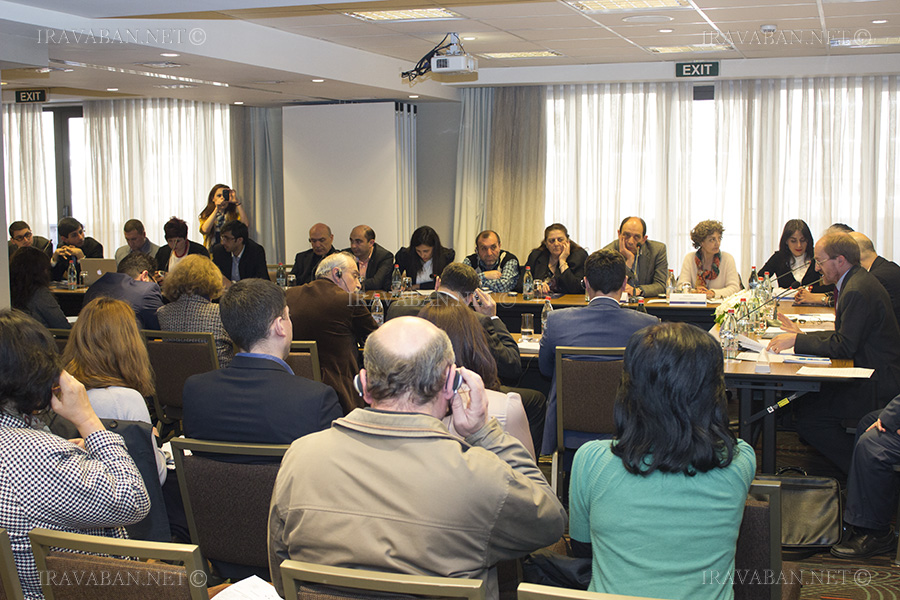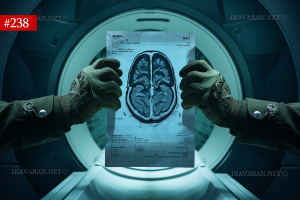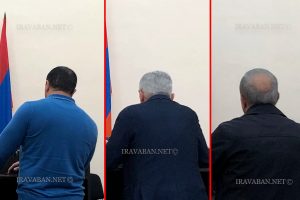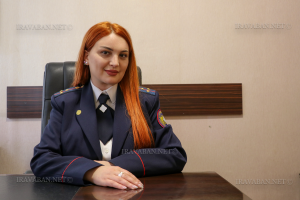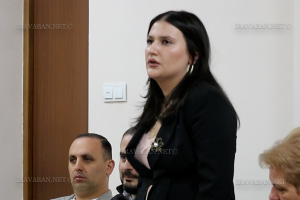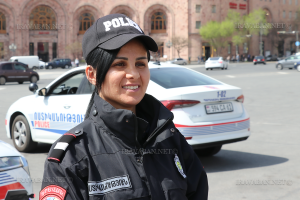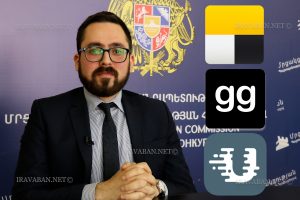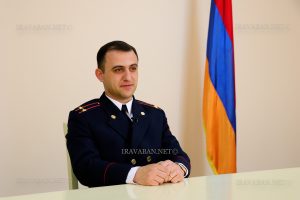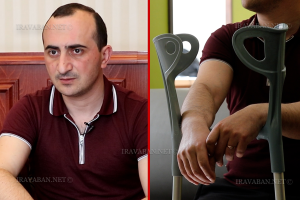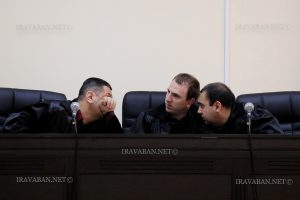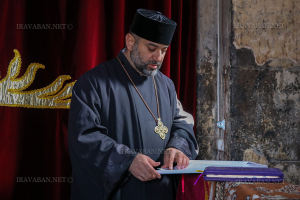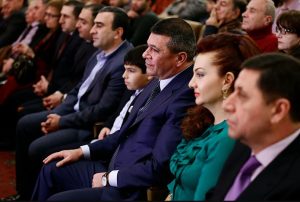“Constitutional reforms are first of all necessary for the citizens of the country,” believes the President of the Armenian Young Lawyers Association Mr. Karen Zadoyan.
Today, on 15 April, Konrad-Adenauer-Stiftung (KAS) in cooperation with the Armenian Young Lawyers Association organized a discussion on “The Role of the Civil Society in the Process of Constitutional Reforms”.
Dr. Canan Atilgan, Director of the Regional Program South Caucasus of Konrad-Adenauer-Stiftung (KAS) welcomed the participants.
She attached importance to the constitutional changes in our country and emphasized that the reforms provide new opportunities for the development of democracy in Armenia. She expected active participation of the civil society organizations in the discussion and expressed confidence that the proposals of CSO will be efficient grounds for the constitutional reforms.
Mr. Zadoyan in his speech mentioned that the in the framework of the constitutional reforms the Council had set a task to actively discuss the document with the political parties. Whereas the Constitutional reforms should first and foremost be aimed at the general public, and the CSO representatives should be the target of the discussion. “Our organization believes that the constitutional reforms are necessary for the country’s citizens. We, in cooperation with our Partner Konrad-Adenauer-Stiftung, tried to organize a small event, which main target is the role of the civil society in the process of Constitutional reforms. How shall the civil society participate in the process of Constitutional reforms, and finally what will it gain as a result of these reforms?” Mr. Zadoyan said.
Mr. Carl Ulbricht, International expert of EU projects held a speech at the event. He referred to the Constitutional reforms in a number of countries, including the experience of Georgia.
The expert stressed the need to ensure transparency of the process and noted that the constitutional reform is a double sided process. “It is important to know who is in control of the process. In many countries, where Constitutional reforms started, they are implemented by the ruling party or the government, because the government wants to control it. Therefore, in such cases there is a very limited opportunity to participate in that process.”
Mr. Ulbricht presented the opposite situation as well. “Sometimes the question arises. For example we receive the CSOs’ questions, they present views. But to what extent are these organizations accountable to public? Is there a clear relationship between NGOs and the public? You need to go to the regions and organize discussions in places, to be able to carry out a dynamic process.”
The expert spoke about the potential of the NGOs, noting that sometimes the civil society organizations that represent the public voice lack the professional skills. “Here expert skills are needed. It is not always that the NGOs of the legal sphere have necessary expert skills in the area of Constitutional reforms,” Mr. Ulbricht said. He proposed to increase the capacity of CSOs through organization of coalitions or join the already existing ones. “One of the US Presidents once said, ‘if you want to speak to Europe, who would you speak with?’ In this case the organizations can form coalitions and participate in the process, which will strengthen their influence.”
Mr. Ulbricht also chose the opposite side of the coin, “Constitutional reforms may bring to worse consequences as well. The main reforms in the country can be made without a long way of constitutional reforms,” mentioned the expert. He also mentioned the actions that improve the atmosphere of trust.
Varuzhan Hoktanyan, Executive Director of “Transparency International” Anti-Corruption Center said it was necessary to form an independent Anti-Corruption Committee in the framework of the reforms. “If such a body starts to operate, it maybe somehow will improve the situation with regard to reduction of corruption,” he said. He also pointed out a problem, according to which the laws and other legal acts are not applied in practice.
Head of the Project Advice on Legal and Judicial Reform in Armenia, GIZ, Member of the Professional Commission for Constitutional Reforms, Mr. Vardan Poghosian spoke about the models of changes in management systems which are in the bases of the reforms, stressing, “What will the parliamentary system of government give from the aspect of over centralization of the government. In the operating system all are actually dependent from the President. In case of ministerial or parliamentary system, the collective management grows. The Parliamentary system of government allows increasing the role of political parties, without which we are dependent on one person, in this case the President. In case of the Parliamentary system the degree of vulnerability is decreased, but even this system cannot be a 100 percent guarantee that after the transition the country will develop from the aspect of democracy.” The expert quoted an excerpt from the concept, according to which these changes are, in fact, of a transitional nature, and the effectiveness of their application is derived from the healthy political culture.
Thus he said “If we lack the civil activity, we shall not be able to shape a political culture, if there is no civil balance against the powers; all the same, that threat grows. If we will just say that the concept is bad, that its purpose is the reproduction of the powers, then at the best we as a civil society will achieve the result where everything remains as it is. A good constitution is the one which creates possible obstacles for the bad government and provides opportunity for the civil society for self expression,” concluded the expert.
Speaking about the Anti-Corruption Council, the Member of the Professional Commission for Constitutional Reforms said, “The Anti-Corruption Council or the body may one of the independent regulatory commissions. We have discussed the common features of its formation. I think that it will have its reflection in the Draft Constitution. We do need to consider it in the framework of the complete system.”
During the discussion Ms Anahit Manasyan, Senior Adviser to the President of the Constitutional Court, Ms Haykuhi Harutyunyan, President of the “Protection of Rights without Borders” NGO, Mr. Avetik Ishkhanyan, President of the Armenian Helsinki Committee, and Ms Tamara Abrahamyan, Coordinator of the Public Network for Cooperation with State Authorities made reports and presentations as well.
In the closing speech Mr. Karen Zadoyan said, “This is a unique event. It should be noted that the ice has been broken; The Civil Society should definitely take part in the Constitutional reform, the speakers here already presented the forms and methods.”
Gevorg Tosunyan

